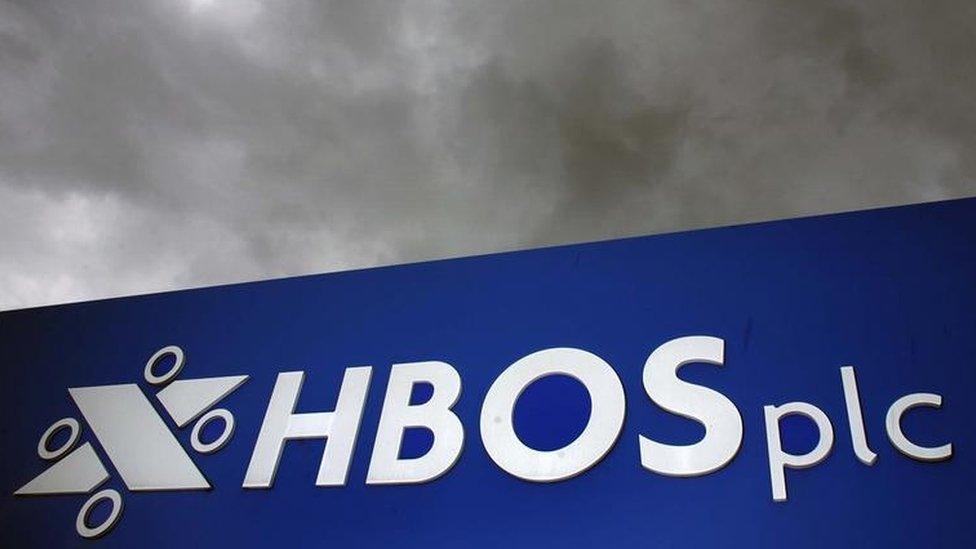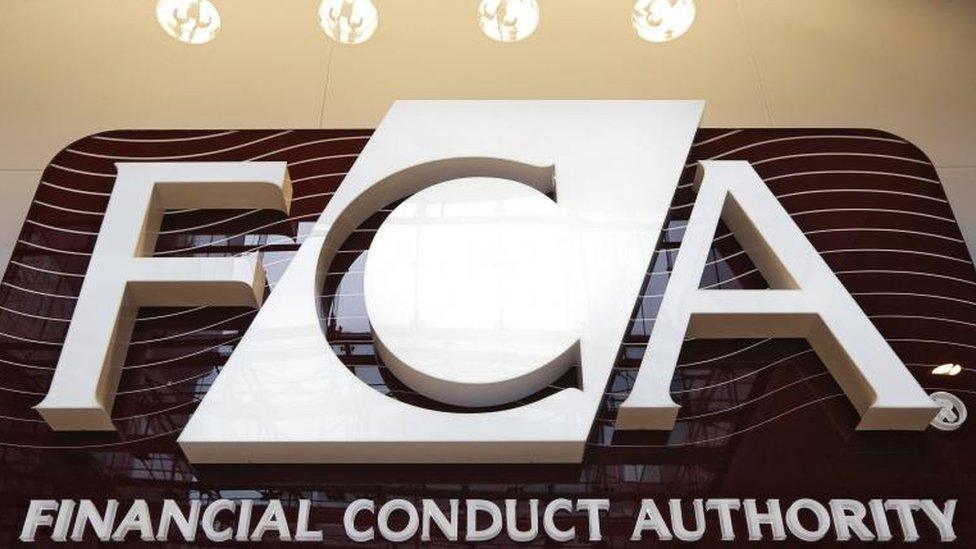HBOS: City regulation 'outdated and unfair' say MPs
- Published

Punishment of banks that break the rules may be better served by a new enforcer in the light of failures surrounding the HBOS collapse, MPs say.
Supervision and prosecution of the industry lies with the same watchdog - now the Financial Conduct Authority.
This system is "outdated and can be construed as unfair", warned the influential House of Commons Treasury Committee.
It has suggested separating the two functions "merits reconsideration".
In a report, the committee heaps renewed criticism on regulators for their role in the HBOS bank saga.
In 2008, HBOS became part of the Lloyds Banking Group and needed a £20.5bn injection from UK taxpayers to prevent it from crashing.
Failures
The committee, in this report, focused its microscope on regulators and investigators, rather than the bank itself.
"The regulators failed, both before and after the HBOS crisis. Seven years after the bank's collapse, we now know just how badly - and not because the regulators showed a spirit to learn the lessons of the past," said Andrew Tyrie, chairman of the committee.
The MPs considered a string of reports into the failure of HBOS and action taken by the regulator at the time - the Financial Services Authority (FSA) - as well as evidence given to the committee.
Mr Tyrie said: "The plain fact is that the FSA did not succeed in protecting consumers from spectacular regulatory failures."
The report described the watchdog at the time - the FSA - as "not up to the job" and "clearly a highly dysfunctional institution".
"Its legacy continues to pose a major challenge for its successor bodies, particularly the FCA," it said.

One way to deal with this problem was for the Treasury to study the idea of a new enforcement body, separate from the City watchdog. This was first suggested by the Parliamentary Commission on Banking Standards.
"A separate statutory body would bolster the perception of the enforcement function's independence. The current system, whereby the same organisation both supervises, applies and prosecutes the law is outdated and can be construed as unfair," the report said.
However, the Treasury rejected such a split in 2014, saying that there were "clear advantages to locating the supervisory and enforcement functions within the same organisation". Practical and legal issues could also affect the efficiency of regulation, it said at the time.
The FCA said: "We have a range of tools at its disposal of which enforcement is an essential one. We believe that if this regulatory tool is separated from the FCA it would potentially lessen our ability to be an effective regulator and impact our ability to protect consumers and ensure the integrity of the UK financial system."
Lack of tools
In a wide-ranging Treasury Committee report, MPs make other criticisms, including:
The Financial Reporting Council's decision not to investigate the auditing of HBOS earlier than it has was a "serious mistake", displaying a "lack of curiosity and diligence". The Council, which is now investigating, said it had been clear that it needed to see a regulator's review, and its work was "robust"
Regulators should not use the government's desire for "light touch" regulation as an excuse for being asleep at the wheel with regards to HBOS. The FSA was independent so it could resist such suggestions
Parliament was not alert enough before the crash
New powers were now in place, the committee said, to ensure the failures were not repeated, although better regulation was still work in progress.
"Notwithstanding their own failings, prior to the crisis the regulators also lacked some of the tools they needed to supervise the banks," the report said.
"The regulators now have these tools. The committee expects the regulators to demonstrate a very high degree of independence, and transparency, in their use."
The Treasury said: "Since 2010, we have dismantled the failed tripartite system and put in place a more focused system of judgement-led supervision by the Financial Conduct Authority and Prudential Regulation Authority. We have also hardwired responsibility and accountability into the financial system, with an emphasis on key decision-makers at the top of banks.
"Our reforms directly address the regulatory failings identified in this report."
- Published19 November 2015

- Published19 November 2015

- Published28 January 2016

- Published19 November 2015